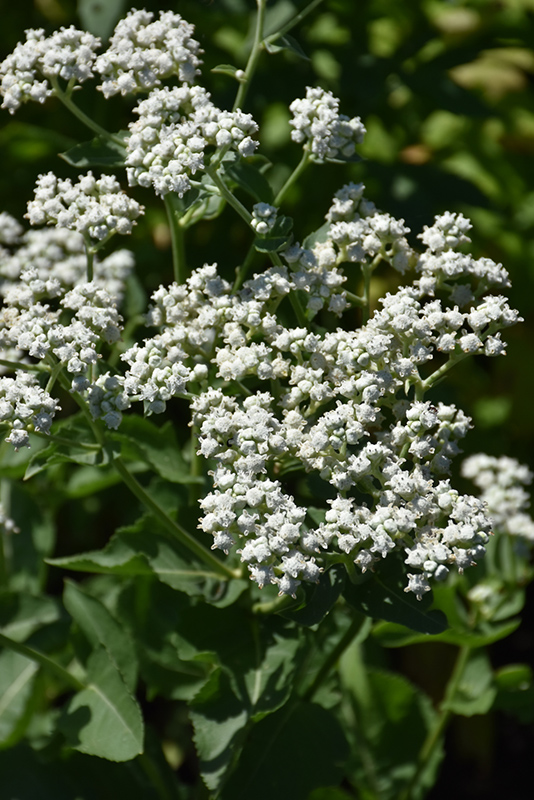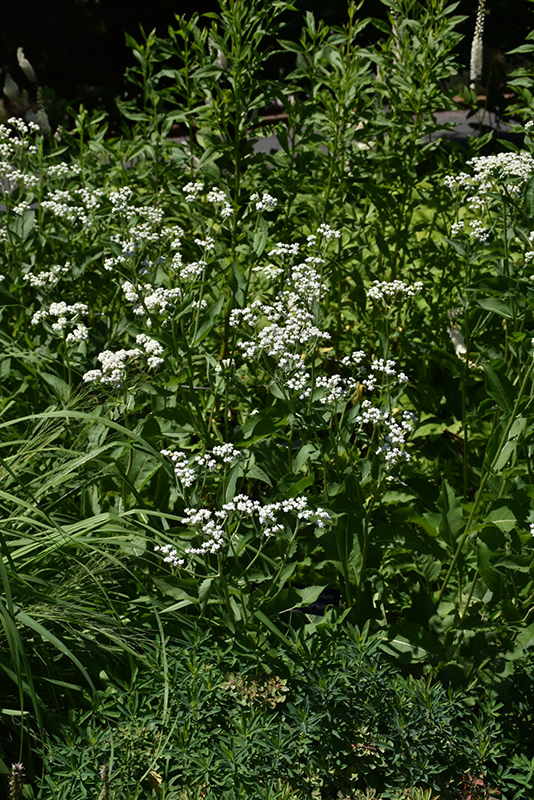Plant Height: 12 inches
Flower Height: 3 feet
Spacing: 12 inches
Sunlight:
![]()
![]()
Hardiness Zone: 4a
Other Names: American Feverfew, Eastern Feverfew, Prairie Dock
Description:
This native wildflower presents rosettes of large, oval, basal leaves from which sturdy stalks emerge, bearing showy flat-topped clusters of white button flowers from late spring to mid summer; attracts pollinators and thrives in dry environments
Ornamental Features
Wild Quinine features showy white flat-top button flowers at the ends of the stems from late spring to late summer. The flowers are excellent for cutting. Its serrated oval leaves remain dark green in color throughout the season.
Landscape Attributes
Wild Quinine is an herbaceous perennial with tall flower stalks held atop a low mound of foliage. It brings an extremely fine and delicate texture to the garden composition and should be used to full effect.
This plant will require occasional maintenance and upkeep, and is best cleaned up in early spring before it resumes active growth for the season. It is a good choice for attracting bees and butterflies to your yard, but is not particularly attractive to deer who tend to leave it alone in favor of tastier treats. Gardeners should be aware of the following characteristic(s) that may warrant special consideration;
- Suckering
- Self-Seeding
Wild Quinine is recommended for the following landscape applications;
- Mass Planting
- Rock/Alpine Gardens
- General Garden Use
- Groundcover
- Naturalizing And Woodland Gardens
Planting & Growing
Wild Quinine will grow to be about 12 inches tall at maturity extending to 3 feet tall with the flowers, with a spread of 18 inches. When grown in masses or used as a bedding plant, individual plants should be spaced approximately 12 inches apart. It grows at a fast rate, and under ideal conditions can be expected to live for approximately 5 years. As an herbaceous perennial, this plant will usually die back to the crown each winter, and will regrow from the base each spring. Be careful not to disturb the crown in late winter when it may not be readily seen!
This plant does best in full sun to partial shade. It prefers dry to average moisture levels with very well-drained soil, and will often die in standing water. It is considered to be drought-tolerant, and thus makes an ideal choice for a low-water garden or xeriscape application. It is not particular as to soil type or pH. It is highly tolerant of urban pollution and will even thrive in inner city environments. This species is native to parts of North America.



